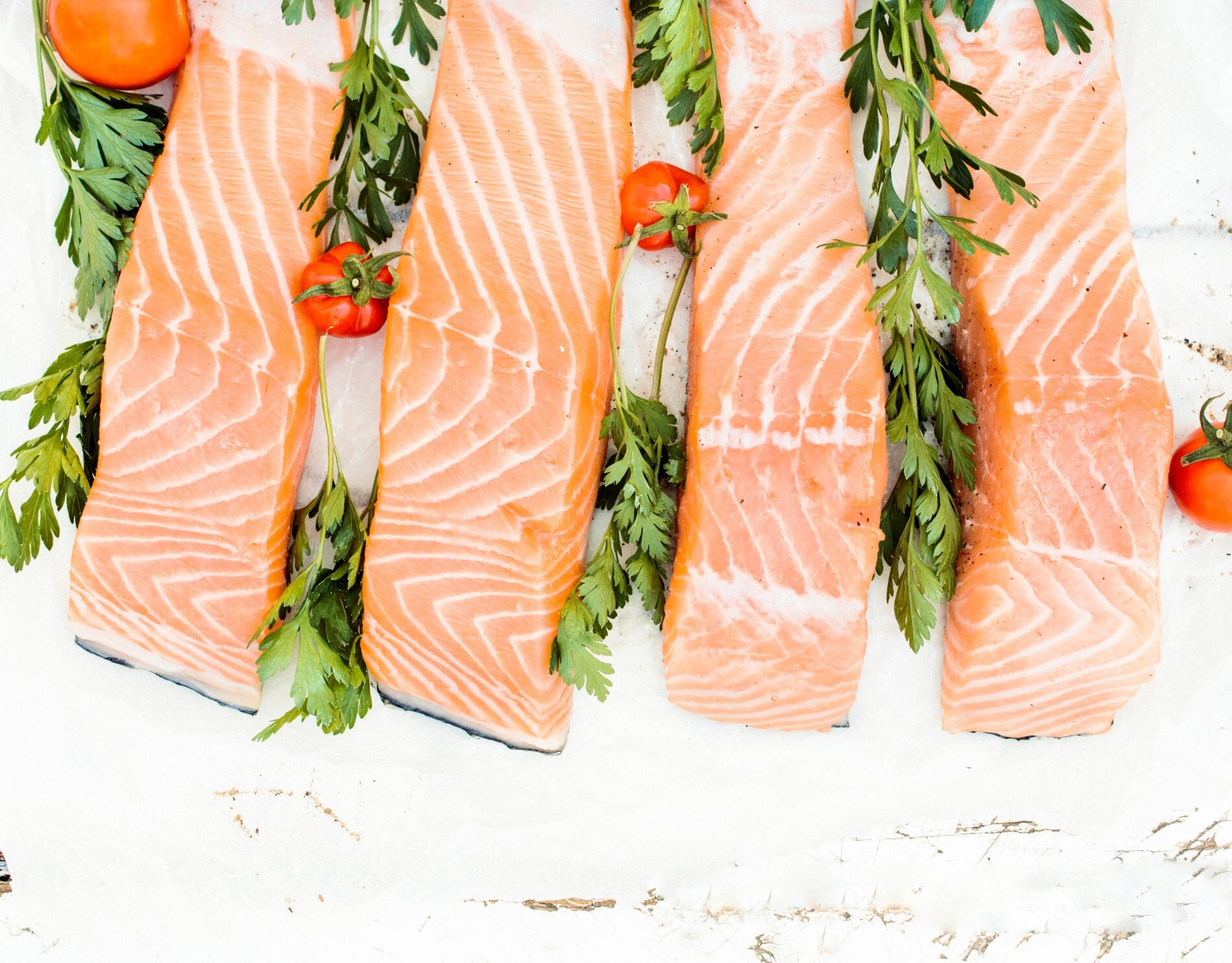Salmon Omega 3 Content
The modern day problem with salmon, a rich source of omega 3 essential fatty acids
Omega 3 Essential Fatty Acids comprise of two acids (EPA and DHA). Our body is unable to produce these compounds itself so it is important that we must obtain these fats from our diet. Salmon is one of the highest sources of these essential fatty acids, which are potent anti-inflammatory agents as well as vital compounds for our brain and nervous system.
I’ve always really enjoyed eating fresh salmon, though nowadays the salmon that is available in the supermarkets and at the fishmonger’s is mostly farmed, which presents some worrying sustainability concerns. Though what does this actually mean for us from a nutritional point of view?
Firstly one of the biggest concerns around salmon farming is the large quantities of fish meal that is required to feed the salmon. It is said that 1.7 kg of wild fish is needed to produce around 1 kg of actual fish meal. This is no doubt becoming a bit of a problem so to get around it, salmon farmers are having to resort to poultry and vegetable protein as salmon feed instead.
So let’s see..... if the salmon we are buying and eating is no longer feeding on wild fish which are high in Omega 3’s and instead is feeding on poultry and protein vegetables which are low in Omega 3’s, then are we actually now getting the same level of Omega 3’ s we were once getting from eating wild-caught salmon? Sadly the answer is NO.
Further, overcrowding in salmon sea pens is causing a negative impact on the water quality causing outbreaks of disease not only in the actual salmon pens but also in the wild and to counter these outbreaks, salmon farmers are having to use chemicals and antibiotics.
Oh, dear !! Are you feeling worried now and turned off eating salmon for life. Rest assured, some health food shops and even market stall vendors are still able to source wild ocean salmon from Norway that tastes a whole lot better than the farmed variety. Though there is still one problem that exists from eating salmon regardless of whether it is found in the wild or not. Salmon has a very high mercury content, and this is said to be toxic to the central and peripheral nervous systems.
So if you are going to eat salmon, firstly try to ensure that it is wild and secondly it is best to consume it in small quantities only i.e. no more than once a week.
This is why small fish such as sardines and anchovies are really the best source of Omega 3’s. Though if you are not a fan, then you may want to consider taking a premium quality Omega 3 supplement that has been tested by an independent third party for oxidation and heavy metals. The reason I mention this is that recently a study was carried out in New Zealand on several brands of Omega 3 supplements and the researchers discovered that many supplements contained much lower quantities of EPA and DHA than what was listed on the label.
There are two very reputable brands that I rely on within my clinic which have been independently tested and certified, so if you are browsing through a health food store ensure that you ask the friendly naturopath or nutritionist on duty for their recommendation or alternatively contact me here:

